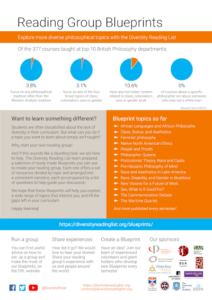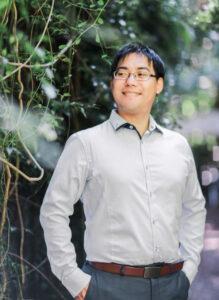Over the last months, the DRL Team has spent a lot of time building on the strong projects we developed last year, bringing you more Blueprints and more live events. Read about them and more below:
News
New Reading Group Blueprints
We are about to expand our initial set of Reading Group Blueprints. Check them out to learn more about immoral statues and monuments, class or race in aesthetics, delve into pre-Hispanic philosophy of mind, or explore the human aspect of logic and mathematics. Three of the five new Blueprints were generously funded by the British Society for Aesthetics. We will announce the release on our social media later this month, and if you have an idea for a Blueprint focused on one of the topics suggested by our research and would like to join our team, have a look at the guidelines we compiled and get in touch!
Blueprints in use
Have you been using one of our Blueprints to run a reading group? We have some first reports from the University of St Andrews where the students ran the Sex, What Is It Good For? group. Here is what they say: ‘The readings […] were without deviation interesting, accessible, contemporary, [and] helped to cement in my mind that sex is a philosophically rich and perhaps unaddressed topic, one with more nuances then I had previously considered or realised.’
We are looking forward to seeing more groups starting around the world and invite you to promote the idea with your students, colleagues and friends!
Help us promote!
Would you like to see more reading groups inspired by our Blueprints starting around the world? Help us promote them by hanging our new promo poster on your department notice board!
DRL diversity and inclusion training
We have been invited to lead a diversity training workshop at the Scottish Graduate School for Arts and Humanities 2022 summer school. Following that event, we are planning to explore the possibility of delivering diversity and inclusion training at other events. If you are hosting an event which could benefit from including such a workshop, please get in touch.
DRL online workshop
Following on the success of last year’s seminar series, we are preparing to delve deeper into the world of live events. This autumn, we will be inviting you for a one-day online workshop organised by our fantastic volunteers, Julia Costet and Suddha Guharoy. The speakers, including Lori Gruen, Nicole Seymour and Elaine Nogueira Godsey, will explore the continuing relevance (or not) of ecofeminism to inform creative resistance practices and the way we imagine environmental justice. More updates coming soon on our social media.
Volunteer Spotlight: Ten-Herng Lai
I’m a teaching specialist (fixed-term) at the University of Melbourne. I’m interested in what private actors may do about injustice. This has led me to work on illegal social movements, including civil disobedience and its uncivil counterparts, and more recently the debate on statues and monuments. Much of this is motivated by the recent social changes in my country of origin, Taiwan. We experienced a mass civil disobedience in 2014. We have a history of struggling against authoritarianism, and are currently in the process of transitional justice. The latter includes confronting political symbols established by past dictators. I believe that our democratisation and political transformation are worth further philosophical attention and theorisation, and I have, in several of my published articles, drawn insight from Taiwan’s recent past.
My involvement with the DRL includes creating a recent Blueprint: The Commemoration Debate. It seems that the debate on statues and monuments, while not completely absent from the literature, has until quite recently received much less philosophical attention than it deserves. Statues and monuments of oppressors, both white and nonwhite, have been the targets of protests and vandalism for at least several decades. In light of the recent boom in the literature, it seems only apt that we have a reading list that focuses on this highly relevant ongoing debate. I believe that it is fitting that this reading list includes authors from different genders, from diverse cultural and linguistic backgrounds, and covers examples from different countries. I contend that, in addition to helping us understand and come to have a better moral judgement on pressing moral, social, and political controversies, social and political philosophy that is informed by a wide range of lived experiences and struggles can enrich mainstream political philosophy.
Get involved, get funded!
We continuously expand our list and you can help us by contributing papers via our contribution page.
We couldn’t do what we do without the help of our fantastic volunteers. If you would like to join them and volunteer for us please get in touch! There are so many ways to get involved: creating new Reading Group Blueprints; adding new list entries; helping us with small one off jobs; becoming a regular editor; and promoting the DRL at events and online.
You might even be able to access funding to support your time working on the DRL. We’re keen to support any volunteers in getting this kind of funding. You can read more about this here.
Thanks so much again for all your support,
The DRL Team












